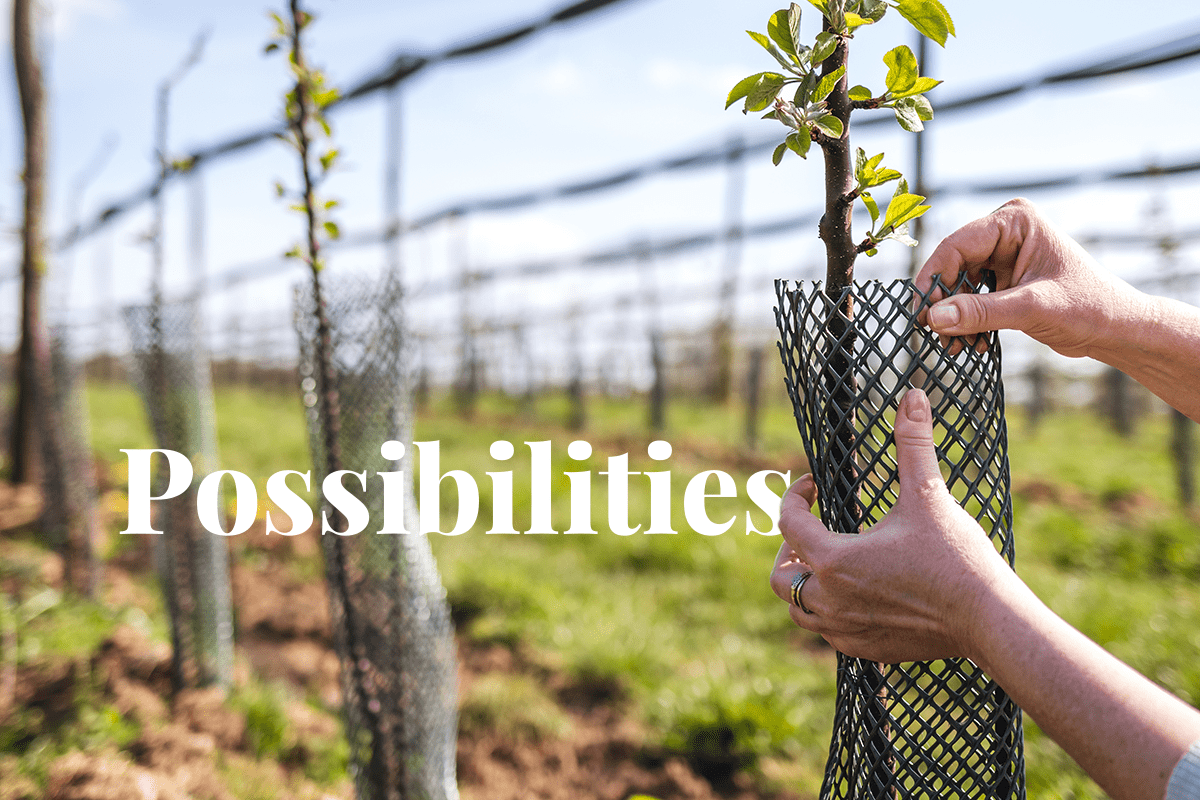Investment in nature-based solutions could create up to 20 million new jobs worldwide, particularly in rural areas, according to a report by the International Labour Organization (ILO), the United Nations Environment Programme (UNEP), and the International Union for Conservation of Nature (IUCN). The report, titled Decent Work in Nature-based Solutions, was launched at the UN's Biodiversity Conference, COP15, in Montreal. Nature-based solutions are actions that protect, restore, and sustainably use natural ecosystems to address social, economic, and environmental challenges while also providing human wellbeing, resilience, and biodiversity benefits.
 Farmer wrapping a protective net around an apple tree at an organic farm.
Farmer wrapping a protective net around an apple tree at an organic farm.
Currently, approximately 75 million people are already employed in the nature-based solutions sector, with the majority living in Asia, the Pacific islands, and lower-middle-income countries. However, many of these jobs are part-time, and the report estimates that there are around 14.5 million full-time equivalent (FTE) jobs. The report also highlights that measuring nature-based solution employment is challenging, and the figures do not capture potential job losses or displacements during nature-based solution implementation.
The report calls for a just transition, ensuring that the greening of the economy through nature-based solutions is fair and inclusive and leaves no one behind. It emphasises the need to meet the ILO's standards for green jobs, which require jobs to be in the environmental sector and aligned with international and national labour standards and decent work principles.
Learn more about how DGB empowers local communities through its projects
The report recommends implementing Just Transition policies, including support for nature-based solution enterprises and cooperatives, skills development, job preparation measures, mainstreaming nature-based solutions in university curricula, and policies that uphold core labour standards. The recently launched Green Jobs for Youth Pact by the ILO and UNEP, aiming to create one million new green jobs, will work towards realising these recommendations on the ground.
Furthermore, the report highlights the need for Just Transition policies to mitigate the risks to jobs and livelihoods during the transition to more sustainable practices, especially in cases where current jobs involve unsustainable uses of nature. These policies could include job placement services, public employment programmes, re-employment training, access to unemployment benefits, early retirement, and payment for ecosystem services programmes.
Investing in nature-based solutions and implementing Just Transition policies could significantly boost employment opportunities, particularly in rural areas, while addressing major societal challenges such as disaster risk and food and water insecurity, the report concludes.
As a company dedicated to large-scale reforestation projects, DGB Group is committed to promoting a healthy labour market within our sector. With the increasing awareness of the importance of nature-based solutions and the growing global nature-based solution demand, we are confident that this market will continue to flourish. Our unwavering trust in the potential of reforestation as a sustainable solution for environmental restoration and the creation of jobs underscores our commitment to not only to protect the planet but also support local economies through meaningful employment opportunities. Together, we can contribute to a greener future while fostering a robust labour market in our sector.
Get in touch with our experts



